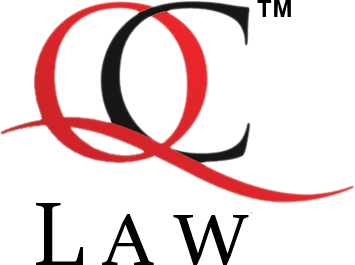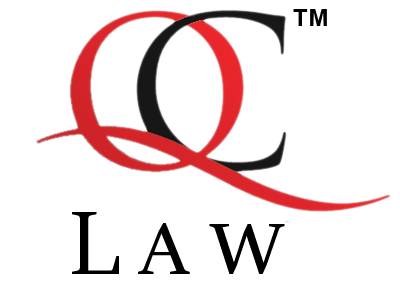Top tips for buying or selling a business
Buying or selling a business can often be an emotional, complicated and confusing process. If you are selling a business, like property, you only get one chance to get the best return on what could have been a lifetime of hard work. If you are buying it’s almost the opposite, you want to ensure you get the right business for the right price. Below we will discuss the top tips for buying and selling a business.
Selling a business
There are a few to consider before you decide to sell your business: -
- Why are you selling?
- Would it be better for you to sell the whole business or to just sell some of the assets?
- Are you selling the business name and the intellectual property?
- Is there anything within the business that you do not want to sell?
Your first step should be preparing the business for sale. This always starts with your financials, work on showing profitability and reducing your costs and then move to expanding your online presence and creating a good strong customer base.
You will need to have your financial records in order, including profit and loss statements and a breakdown of your ongoing costs. You will also need information about supplier accounts, stock inventory lists, any customer contracts and any forecasting documents. Having these documents in order makes it simpler for the buyer to do their due diligence and makes your business more attractive to a buyer. There is no such thing as too much information, put yourself in the shoes of the buyer and think of questions that you would want answered and prepare for that.
Once you have decided to sell, it is important to engage the right professionals, particularly your accountant, lawyer, and a business broker if you choose to engage one for the sale of your business. Business brokers are experts in helping their clients to sell and buy businesses and can be a real asset to you as a seller.
Seeking accounting advice before you sign a contract will allow you to consider any capital gains and tax implications of the sale. Your lawyer is important once you have found a buyer, to ensure that your legal rights are protected and that the contract is drafted to accurately reflect the terms of the agreement.
BUYING A BUSINESS
When it comes to deciding whether to buy an independent business or a franchise, there are no hard and fast rules. As with selling a business you will need your team of experts on hand to help guide you through the process. Your Accountant and lawyer will be your closest allies during this process.
Independent BusinessOne of the main benefits of purchasing an independent business is that you have greater control to take your business in the direction you choose.
Unlike franchise owners, you have the freedom to implement new ideas or to change your products and services based on your own personal interests or market conditions. You’re also not bound by specific catchment areas or terms and conditions, giving you greater flexibility to market your products to a broader audience.
A FranchiseFranchise owners enjoy the security that comes from belonging to a much larger organisation. Other benefits include strong brand recognition, bulk purchasing power, group marketing support and training. But there are also costs associated that you need to make sure you are aware of.
The MoneyThe next thing to consider when buying a business is what is your budget? Have you considered all of the costs involved, not just the purchase price but also: -
- any GST if it is not a going concern
- any lease assignment costs
- payment of legal costs
- any business advisor or accountant costs for due diligence
- payment of stamp duty
These are all generally necessary costs in buying a business.
Have you decided what entity to buy in? Be it a trust, a company or as a sole trader or partnership. This is important to get right before you sign a contract as it is likely to be costly to change it later.
Due DiligenceOnce you have decided to buy, the due diligence is very important for a buyer and through the due diligence process, the buyer thoroughly investigates all aspects of a business for sale. The buyer looks at the business's operations, financial performance, legal and tax compliance, customer contracts, intellectual property, assets and other details. The buyer’s accountant will often assist them in reviewing the financial records of the business in full for the past few years, including balance sheets, profit and loss statements and tax returns. All of this information is vital for the buyer to consider before making the decision to proceed with the purchase.
SO, WHAT SHOULD BE IN A BUSINESS SALE CONTRACT?
A business sale contract needs to be carefully drafted to reflect the terms of the agreement and should include things like:
- Purchase price and the deposit
- Detail all the relevant assets that are being transferred; this includes:
- property, equipment, fixtures, fittings, stock, and any rights to use any names, websites, email addresses, phone numbers.
- all the relevant liabilities, including creditors (people or businesses that your business owes money to)
- the lease of the business premises, which often needs to be assigned or a new lease entered into.
- responsibility for employees and employee entitlements, including whether employees are to be transferred with the sale
- is there a trial period? Or a period of tuition for the seller to teach the buyer the ropes?
- statements about what will happen if any issues arise (for example, the buyer decides not to proceed, mistakes are discovered in the contract, etc)
- is there a finance condition giving the buyer the opportunity to obtain finance to fund the purchase?
- Date for settlement
There are some contract clauses that will restrict you from trading in your profession after the sale of your business. These clauses are often to prevent you from competing directly against your sold business. Make sure you’re aware of all the terms and conditions of the contract before deciding to sell.
Assuming that all of the contract conditions are met and all necessary approvals in place, the actual act of settlement is usually a very quick process. Settlement commonly involves the exchange of: -
- Business Name transfers
- keys for access to premises
- security codes
- cheques for payment by the buyer together with relevant third-party approval documents (such as lessor’s deed of assignment of lease, franchisor’s new franchise agreement).
Once the settlement process has been completed, the business has been sold and it is time for the seller and the buyer to celebrate.
At QC Law we can walk you through the process as either the seller or the buyer and we offer a professional, fixed fee service to all our clients. At QC Law we strive to be your lawyers for everyday life. Contact the team at QC Law for all your legal needs at [email protected]


